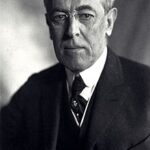The Decision
President Woodrow Wilson signed the Federal Trade Commission Act on September 26, 1914. This landmark legislation created an independent federal agency with unprecedented regulatory power. The FTC replaced the weak Bureau of Corporations, which lacked enforcement authority. Wilson viewed this as essential to his “New Freedom” domestic agenda.
Breaking Corporate Monopolies
The Federal Trade Commission received broad investigative powers to combat unfair business practices. It could issue cease-and-desist orders against companies engaging in deceptive advertising. The agency gained authority to prevent price-fixing schemes and monopolistic behavior. 📊 Wilson appointed five commissioners to serve staggered seven-year terms, ensuring political independence.
Consumer Protection Revolution
This decision marked America’s first comprehensive consumer protection framework. Small businesses gained federal support against predatory pricing by large corporations. ⚠️ The legislation addressed growing public anger over corporate abuses during the Gilded Age. 💰 Middle-class consumers finally had federal recourse against fraudulent business practices that had previously gone unchecked.
Impact:
Immediate Economic Consequences
The Federal Trade Commission immediately began investigating major corporations for antitrust violations. Within two years, the agency filed dozens of complaints against companies using deceptive practices. Small businesses reported increased confidence in competing against larger rivals. 📈 Stock markets initially reacted negatively but stabilized as regulatory certainty emerged.
Long-term Consumer Benefits
The FTC’s creation fundamentally transformed American commerce over the following decades. Consumer protection became a permanent federal responsibility rather than state-by-state enforcement. The agency’s truth-in-advertising standards eliminated countless fraudulent schemes targeting ordinary Americans. 🛡️ Modern consumer rights trace directly back to Wilson’s 1914 decision.
Constitutional and Political Legacy
Legal scholars praise this decision as a masterful balance of federal power and business freedom. The Federal Trade Commission survived numerous political challenges and court cases. 🌍 International governments studied America’s model when creating their own consumer protection agencies. The FTC continues operating today with expanded digital-age responsibilities, protecting millions of consumers from unfair business practices across traditional and online marketplaces.
